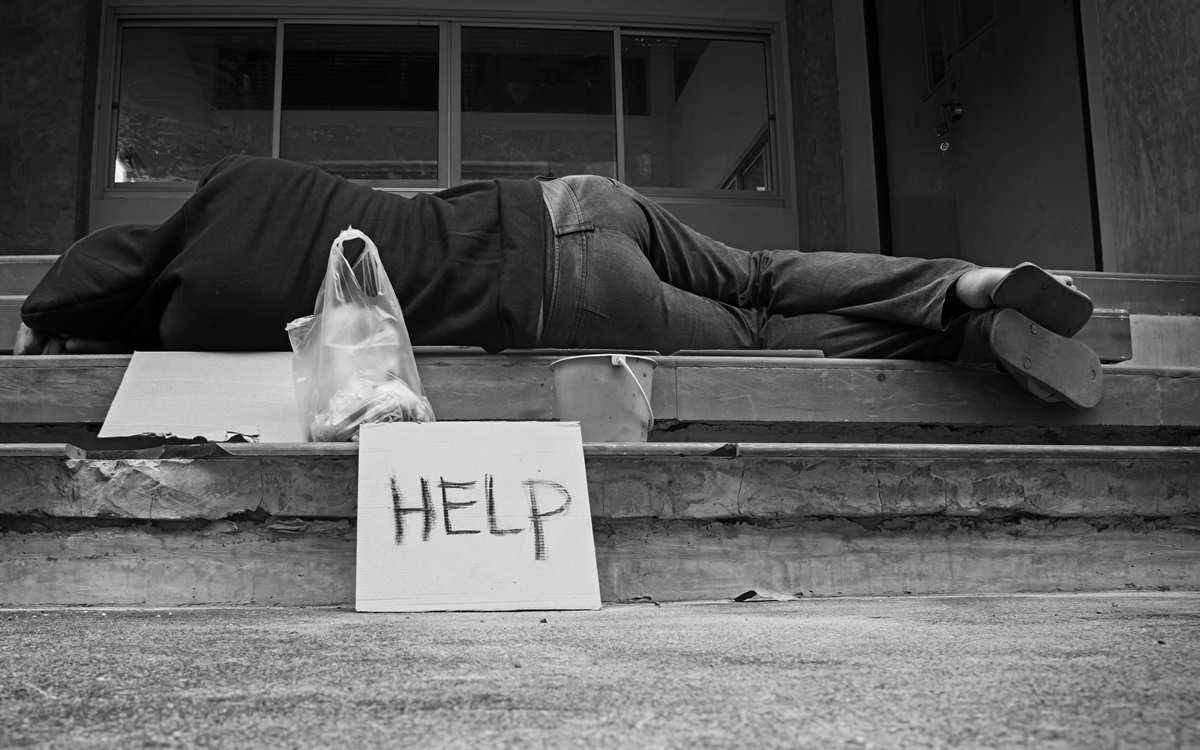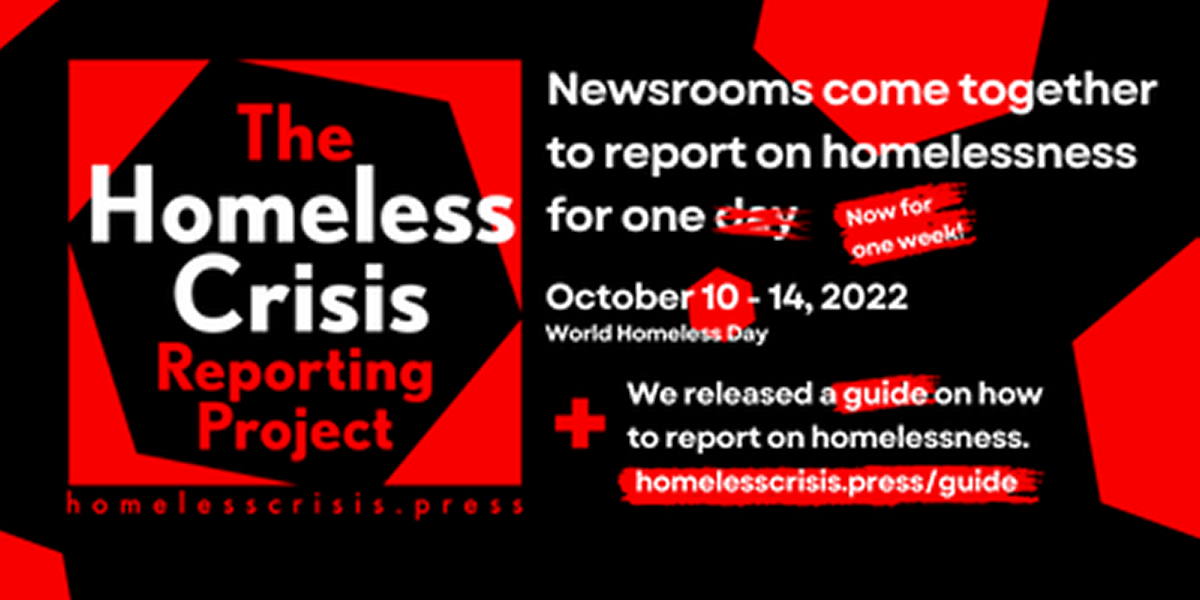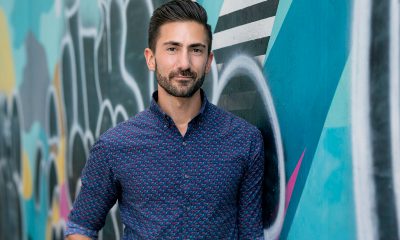District of Columbia
Number of D.C. shelters serving LGBTQ homeless is growing
Existing groups step in to fill gaps created by Casa Ruby shutdown


The Wanda Alston Foundation states on its website that it made history in 2008 when it opened D.C.’s first transitional housing program solely dedicated to LGBTQ+ youth ages 18 to 24 experiencing homelessness.
As part of that program, the foundation, named after the late and beloved LGBTQ rights advocate Wanda Alston, has since opened two more LGBTQ youth homeless facilities, including one that opened last year that also made history.
Referred to as Renita’s, it’s a two-bed, two-year transitional housing program believed to be the first known such facility focused specifically on serving homeless transgender men of color.
In January 2017, the D.C. LGBTQ youth advocacy organization SMYAL opened the first of five housing sites it currently operates that can serve up to 66 LGBTQ youth experiencing homelessness.
Like the Alston Foundation, SMYAL states on its website that it provides a wide range of services for its LGBTQ youth residents in addition to a safe and stable shelter, including food, case management services, mental health counseling, crisis intervention, and employment related skills development.
The two groups also have designated at least one of their housing facilities to offer their residents extended transitional housing for up to six years.
Beginning in 2012, Casa Ruby, under the direction of its founder Ruby Corado, evolved into the city’s largest LGBTQ specific emergency shelter facility, operating what it said was a greater than 50-bed shelter program at seven locations. The program provided services in both English and Spanish to youth and some adults. It had a special outreach to transgender women of color in need of housing.
But due to a financial crisis brought about by the loss of hundreds of thousands of dollars in D.C. government grants and which remains under investigation by the Office of the D.C. Attorney General, Casa Ruby curtailed and eventually shut down all of its operations during a year-long period that culminated this past July. In court documents filed as part of a civil complaint filed against Casa Ruby, the AG’s office said, among other things, the loss of city funding was brought about by Casa Ruby’s failure to provide required finance reports verifying how the money was spent. Corado disputes that allegation.
At the request of the AG’s office, a D.C. Superior Court judge has placed Casa Ruby in receivership and appointed the Wanda Alston Foundation as the receiver.
In a report released last month, the Alston Foundation recommended that Casa Ruby be dissolved, saying its debts far exceed any remaining assets. The judge has yet to hand down a ruling on whether to dissolve the once highly regarded LGBTQ organization or take steps to determine if it can be revived.
Since its shutdown, other local organizations, including SMYAL, have taken steps to provide support for the Casa Ruby clients impacted by the shutdown.
“Following the closure of Casa Ruby, SMYAL has been working with our partners at other housing providers, the D.C. Department of Human Services, and the Mayor’s Office of LGBTQ Affairs to identify and fill gaps in services,” SMYAL spokesperson Hancie Stokes told the Washington Blade.
“Most directly, SMYAL has launched a new Latinx Street Outreach program that is designed to support Spanish-speaking LGBTQ youth who may have been connected to services or in need of new services,” Stokes said in an email. “We started piloting this program just last month and have already begun working with 22 Spanish-speaking youth to connect or reconnect them with services, including housing, and assist them with obtaining vital documents, and navigating legal procedures,” she said.
In September 2021, the D.C. Department of Human Services informed Casa Ruby it would not renew its main grant that funded the Casa Ruby homeless shelter program. At that time, DHS announced it had awarded a grant for a new D.C. LGBTQ youth homeless shelter to Covenant House, a nonprofit group that provides homeless youth services nationwide. The Washington Post reported the grant was for $648,000,
Covenant House announced it opened the new 24-bed LGBTQ youth shelter, called Shine, on Sept. 30, 2021, in the city’s Deanwood neighborhood in Northeast D.C. Although other non-LGBTQ organizations currently provide homeless-related services, including shelter accommodations, for LGBTQ youth, the Covenant House Shine facility is believed to be the city’s first LGBTQ shelter operated by a non-LGBTQ specific organization.
“Most LGBTQ+ young people access services from non-LGBTQ-specific agencies,” Covenant House states on its D.C. website. “At Covenant House, we’re proud of the diversity of the youth in our houses and the staff who welcome and serve them,” the statement says. “All young people facing homelessness are welcome here and are embraced with unconditional love, absolute respect, and relentless support.”
With nearly all LGBTQ specific homeless facilities in D.C. focusing on youth, the city’s first official shelter for LGBTQ adults opened its doors on July 14 of this year following a ribbon-cutting ceremony led by D.C. Mayor Muriel Bowser.
The 40-bed shelter, located in the city’s Marshall Heights neighborhood at 400 50th St., S.E, will accommodate unaccompanied adults 25 years of age and older, according to a statement released by the mayor’s office.
“The shelter will provide trauma-informed case management services including mental health, substance abuse treatment, medical, and victims’ services,” the statement says.
“We are proud to cut the ribbon on a shelter that embodies our D.C. values as well as our commitment to making homelessness rare, brief, and nonrecurring,” Bowser said at the ceremony. “With this new facility, we’re breaking down barriers to shelter, building community, connecting residents with the trauma-informed services they need to live healthy, happy lives,” the mayor said.
Under city funding, the new LGBTQ adult shelter is being operated by the Community Partnership for the Prevention of Homelessness (TCP), the statement from the mayor’s office says. It says two other local nonprofit groups, Coalition for the Homeless and the KBEC Group, Inc., will assist TCP in operating the shelter.
At least two other non-LGBTQ locally based organizations – the Latin American Youth Center (LAYC) and Sasha Bruce Youthwork – also provide services for homeless LGBTQ youth, including housing-related services, the two groups state on their websites.
Stokes, the SMYAL spokesperson, said the non-LGBTQ organizations operating homeless programs for LGBTQ people are meeting a need for increased services. But she said additional training may be needed to ensure that all organizations can fully meet the specific needs of their LGBTQ clients.
“There is still a lot of work that needs to be done in order to ensure LGBTQ youth who are matched with non-LGBTQ-specific providers are affirmed, welcomed, and supported fully,” Stokes said.
“SMYAL and our partners have been working to increase cultural competency among all housing providers, but there is a continued need to invest in training providers to build capacity to directly serve LGBTQ youth, as well as creating solid foundations for additional providers who are accessible to LGBTQ youth,” she said.
The 2022 Point-in-Count findings show a continued trend in decreasing numbers of homeless people in D.C. Mayor Muriel Bowser pointed out at the time the results were released in April that the total homeless count of 4,410 was down from 8,350 homeless people counted in 2016.
The mayor noted that the 2022 findings show single adult homelessness decreased 12 percent from the 2021 count and family homelessness was down by 14 percent from 2021.
District of Columbia
Gay ANC member announces candidacy for Ward 1 D.C. Council seat
Community leader Brian Footer seeking seat held by Brianne Nadeau

Gay Advisory Neighborhood Commissioner Brian Footer, a community activist who has been involved for many years in local and national government affairs, has announced his candidacy for the Ward 1 D.C. Council seat up for election in 2026.
Footer, a Democrat, will be running in the city’s June 2, 2026, Democratic primary for the Ward 1 Council seat, but it is uncertain whether he will be running against incumbent Ward 1 Council member Brianne Nadeau (D). Nadeau has not yet announced if she plans to run for re-election for a fourth term following her 12 years on the Council.
Nadeau has been a longtime vocal supporter of the LGBTQ community.
If Footer were to win the primary and the November 2026 general election, he would become the Council’s second openly gay member. Ward 5 Council member Zachary Parker (D) is currently the 13-member Council’s only gay member.
Footer is a three-term ANC commissioner who currently serves as Chair of ANC 1E, which represents the city’s Adams Morgan neighborhood.
“Brian has worked at every level of government — federal, state, and local — building a career rooted in public service, aging policy, and inclusive urban planning,” a statement on his campaign website says.
“I’m running for Council because too many people in Ward 1 are doing everything right and still feel ignored by the city they call home,” Footer states on his website.
“I’m running because we can do better,” his statement continues. “That means making housing more affordable, addressing homelessness with real solutions, and keeping our neighborhoods safe with smart, community focused strategies.”
When contacted by the Washington Blade for comment, Nadeau said she was not ready at this time to discuss her plans about running again or about Footer’s candidacy.
“The primary is a ways away, and I’m very focused right now on the budget and the stadium deal and all the work that we’re doing at the Council,” she told the Blade. “So, I really haven’t had time to turn to my plans. So, as a result, I’m also not going to be commenting on anybody else who is determined that they’re running at this time.”
She first won election to the Council in 2014 after she defeated four-term gay Ward 1 Council member Jim Graham in the Democratic primary after Graham became embroiled in an ethics controversy.
In the 2022 Democratic primary Nadeau defeated gay challenger Salah Czapary in a three-candidate race, by a margin of 48.5% of the vote compared to Czapary’s 30.9%.
With the third candidate, Sabel Harris, receiving 20.4%, the outcome showed that the two challengers had a combined total vote count higher than Nadeau.
Further details of Footer’s candidacy can be accessed from his campaign website, brianfooterdc.com.
District of Columbia
Gay GOP group hosts Ernst, 3 House members — all of whom oppose Equality Act
Log Cabin, congressional guest speakers mum on June 25 event

U.S. Sen. Joni Ernst (R-Iowa) and three women Republican members of the U.S. House appeared as guest speakers at the June 25 meeting of Log Cabin Republicans of D.C., the local chapter of the national LGBTQ Republican group with that same name.
The U.S. House members who joined Ernst as guest speakers at the Log Cabin meeting were Celeste Maloy (R-Utah), Kat Cammack (R-Fla.), and Julia Letlow (R-La.).
Neither D.C. Log Cabin Republicans President Andrew Minik nor spokespersons for Ernst or the three congresswomen immediately responded to a request by the Washington Blade for comment on the GOP lawmakers’ appearance at an LGBTQ GOP group’s meeting.
“Please join us for an inspiring evening as we celebrate and recognize the bold leadership and accomplishments of Republican women in Congress,” a D.C Log Cabin announcement sent to its members states.
“This month’s meeting will highlight the efforts of the Republican Women’s Caucus and explore key issues such as the Protection of Women and Girls In Sports Act and the broader fight to preserve women’s spaces in society,” the message says.
It was referring to legislation pending in Congress calling for banning transgender women from participating in women’s sports events.
According to media reports, Ernst and the three congresswomen have expressed opposition to the Equality Act, the longstanding bill pending in Congress calling for prohibiting discrimination based on sexual orientation and gender identity in the areas of employment, housing, and public accommodations.
The Log Cabin announcement says the meeting was scheduled to take place at the Royal Sands Social Club, which is a restaurant and bar at 26 N St., S.E. in the city’s Navy Yard area.
D.C. Log Cabin member Stuart West, who attended the meeting, confirmed that Ernst and the three congresswomen showed up and spoke at the event.
“It was a good turnout,” he said. “I would definitely say probably 30 or 40 people attended.” West added, “Four women came to talk to a group of mostly gay men. That’s something you don’t see very often.”
District of Columbia
D.C. police seek public’s help in July 5 murder of trans woman
Relative disputes initial decision not to list case as hate crime

D.C. police are seeking help from the public in their investigation into the murder of a transgender woman who they say was shot to death at about 12:30 a.m. on Saturday, July 5, on the 2000 block of Benning Road, N.E.
But the police announcement of the fatal shooting and a police report obtained by the Washington Blade do not identify the victim, 28-year-old Daquane ‘Dream’ Johnson of Northeast D.C., as transgender. And the police report says the shooting is not currently listed as a suspected hate crime.
It was local transgender activists and one of Johnson’s family members, her aunt, who confirmed she was transgender and said information they obtained indicates the killing could have been a hate crime.
“On Saturday, July 5, at approximately 12:51 a.m., Sixth District officers were flagged down in the 2000 block of Benning Road, Northeast, for an unconscious female,” a July 5 D.C. police statement says. “Upon arrival, officers located an adult female victim suffering from gunshot wounds,” it says.
“D.C. Fire and EMS responded to the scene and transported the victim to a local hospital where after all lifesaving efforts failed and the victim was pronounced dead,” the statement says.
A separate police flyer with a photo of Johnson announces an award of $25,000 was being offered for information leading to the arrest and conviction of the person or persons responsible for the murder.
The flyer identifies D.C. police Homicide Detective Natasha Kennedy as being the lead investigator in the case and says anyone with information about the case should contact her at 202-380-6198.
Longtime D.C. transgender rights advocate Earline Budd told the Blade that one of the police investigators contacted her about the case and that she also spoke to Detective Kennedy. Budd said police confirmed to her that Johnson was a transgender woman.

One of Johnson’s family members, Vanna Terrell, who identified herself as Johnson’s aunt, told the Blade that Johnson used the first name of Dream and had planned to legally adopt that name instead of Daquane but had not gotten around to doing so.
Terrell said she and other family members learned more about the incident when one of two teenage high school students who knew Johnson’s brother contacted a friend and told the friend that they recognized Johnson as they witnessed the shooting. Terrell said the friend then called her to tell her what the friend learned from the two witnesses.
According to Terrell, the witnesses reportedly saw three men approach Johnson as Johnson walked along Benning Road and one of them called Johnson a derogatory name, leading Terrell to believe the men recognized Johnson as a transgender woman.
Terrell said one of the witnesses told the friend, who spoke to Terrell, that the man who shot Johnson kept shooting her until all of the bullets were fired. Budd, who said she spoke to Terrell, who also told her what the witnesses reported, said she believed the multiple shots fired by the shooter was an “overkill” that appears to have been a hate crime. Terrell said she too believes the murder was a hate crime.
In response to an inquiry from the Blade, Officer Ebony Major, a D.C. police spokesperson, stated in an email, “At this point there is nothing in the investigation that indicates the offense was motivated by hate or bias.”
Terrell said a memorial gathering to honor Johnson’s life was scheduled to be held Saturday, July 12, at River Terrace Park, which is located at 500 36th St., N.E. not far from where the shooting occurred.

-

 Federal Government2 days ago
Federal Government2 days agoTreasury Department has a gay secretary but LGBTQ staff are under siege
-

 Virginia3 days ago
Virginia3 days agoDefying trends, new LGBTQ center opens in rural Winchester, Va.
-

 District of Columbia2 days ago
District of Columbia2 days agoGay GOP group hosts Ernst, 3 House members — all of whom oppose Equality Act
-

 Opinions4 days ago
Opinions4 days agoUSAID’s demise: America’s global betrayal of trust with LGBTQ people









